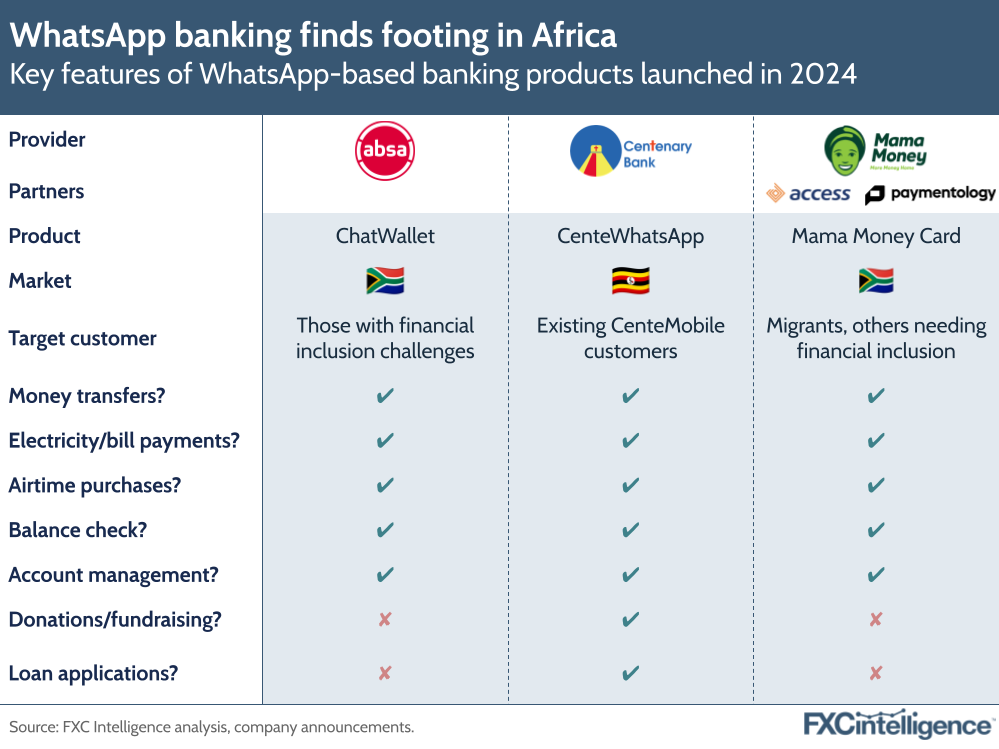Last week, South African remittances player Mama Money announced it was launching a new WhatsApp-based virtual card and banking service, Mama Money Card. It’s the third high-profile launch of a WhatsApp-based service in Africa in just a few months, but what is the appeal of the platform?

Provided in partnership with Access Bank and card player Paymentology, the Mama Money Card is a combined virtual card and mobile banking product where customers can manage their funds, pay for electricity or mobile data and make money transfers via WhatsApp.
Requiring only a passport, asylum document or South African ID, the card is designed to have lower barriers to entry than a traditional bank account. This is intended to help migrants especially, who face particular struggles with financial inclusion and are more likely to be Mama Money remittance customers.
It is the third major WhatsApp-based banking product to be announced in Africa this year. In January, Uganda’s Centenary Bank announced the WhatsApp banking platform CenteWhatsApp. Meanwhile, in February, South Africa’s Absa Bank launched standalone wallet product ChatWallet. And while CenteWhatsApp requires customers to already be signed up to Centenary’s online banking service, ChatWallet is, like Mama Money Card, a standalone service with low sign-up barriers.
In all cases, the range of activities that are possible to be performed over WhatsApp are relatively broad, and are all conducted using a question-and-answer format to the provider’s assigned number over the messaging platform. It follows multiple banks and other financial services providers adding customer service and in some cases account management support via WhatsApp; Absa, for example, first launched a banking service for its existing accounts on WhatsApp in 2018.
However, adoption of WhatsApp banking in Africa has reportedly been relatively slow, with some users being cautious to trust such interactions via social media. But there are significant benefits on both the user and provider side. The first for users is availability and access – WhatsApp is the most popular messaging app in most parts of Africa and reportedly has over 95% penetration in South Africa – while the second is access costs. With many users relying on pay-as-you-go data to access mobile banking services, a text-based system provides an extremely low cost way to access services.
Meanwhile, for providers, WhatsApp provides a platform that is much cheaper and faster to develop a customer-ready interface than coding a standalone mobile or web application, and which can be easily updated as required. Other emerging markets such as India are also seeing growing support for WhatsApp banking for the same reasons, but time will tell as to how dominant the platform becomes in this space.


